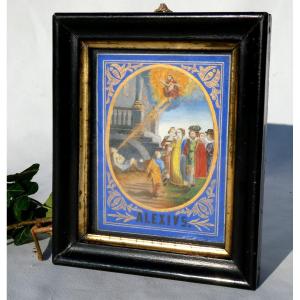French work depicting the profile of Jean Jacques Rousseau.
Bas relief measuring 18cm in diameter.
Good general condition
Jean-Jacques Rousseau (1712–1778) Jean-Jacques Rousseau was a French-speaking Genevan philosopher, writer, and musician, a major figure of the Age of Enlightenment. Born in Geneva in 1712, he left his hometown as a teenager and traveled throughout Switzerland and France. He settled in Paris, where he frequented intellectual circles. He became known for his Discourse on the Sciences and the Arts (1750), in which he criticized the corrupting effects of progress on human morality. His most famous work was The Social Contract (1762), in which he developed his theory of popular sovereignty: "Man is born free, and everywhere he is in chains." The same year, he also published Émile, an innovative reflection on education. These writings, deemed subversive, led to his prosecution by the French and Swiss authorities. Rousseau was also the author of Confessions, a revolutionary autobiography in its sincerity, and numerous works on political philosophy, botany, and music. He died in 1778 near Ermenonville, France. In 1794, his ashes were transferred to the Panthéon in Paris, in recognition of his influence on the French Revolution.


































 Le Magazine de PROANTIC
Le Magazine de PROANTIC TRÉSORS Magazine
TRÉSORS Magazine Rivista Artiquariato
Rivista Artiquariato